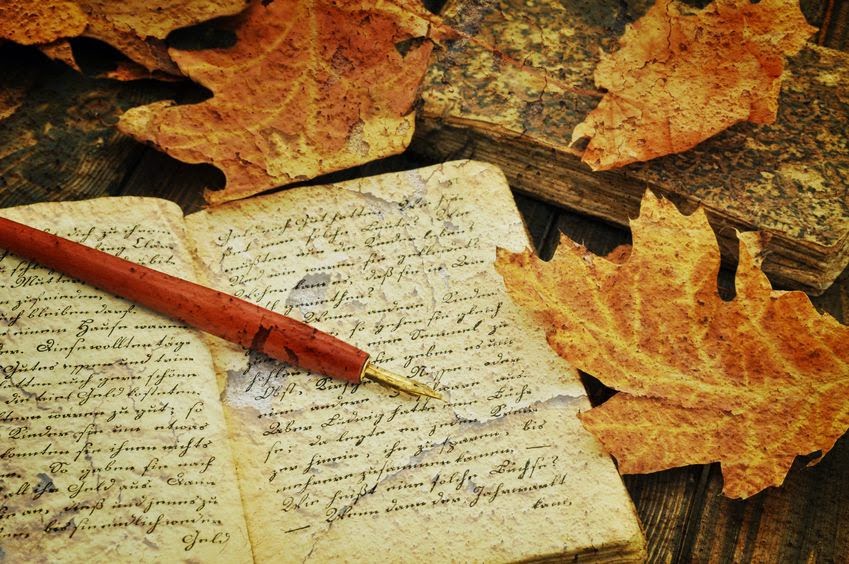Happy Thursday, good people of the blogosphere! Today, I'm gonna talk to you about pronouns in dialogue and how they impact the way you use them outside speech. I've been over pronouns twice thus far, but this little tidbit needs to be added. I didn't want to confuse everyone by putting this information in with the other pronoun posts, so I'm making one all its own. Grab your pens and notebooks and join me for a quick lesson! Warning! This post seems long, but it's a lot of the same stuff written over and over again. A necessary evil, I'm afraid.
Remember, your pronouns are: he, him, she, it, its, they, their, them, they're, hers, and his.
Now, when you're writing a scene, the pronoun refers to the last person or thing named.
Learn more
here and
here.

There are caveats to this, though.
First, when we speak, we usually don't use pronouns the right way. For example:
"Lisa told me last night Mel owes her money and isn't sure when she's gonna pay her back."
What a mess that is, right? But it makes sense when someone speaks that way. Why?
Because that's what we're used to hearing. We get that Mel owes Lisa money and Lisa isn't sure when Mel is going to return said money. But to write the dialogue with proper pronouns, we'd have to rearrange it like this:
"Lisa told me last night she isn't sure when Mel's gonna pay back the money she owes."
That's okay, too, by the way; but don't beat yourself up over pronouns in dialogue. Above all else, you want speech to sound natural, not forced. So, pronouns in speech aren't something you need to be super vigilant about. Let it flow.
Second, when you're creating dialogue and you mention a name, you need to remove the speech to see who your pronoun is actually referring to. Also, the pronouns in speech are separate from the ones in text. This gets tricky, but I'll do my best to show you a couple of examples:
Susie looked at Byron and drummed her fingers on the desktop. "So, you're saying Lisa doesn't really like Mark?"
"That's what I'm saying. She's just using him to have a date to prom."
She gasped. "That's horrible!"
"You know how she is. How does that surprise you?" His eyebrow lifted and a smirk found its way onto his lips.
"I just never thought she'd be so crass." Her mouth turned down and her eyes shifted away. "It doesn't do to hurt people. Mel let it drop the other day that she thought her intentions weren't honorable. I just didn't believe her."
"Well, I'm telling you now, she's planning to make a big scene and leave him looking like an idiot at the end of the night." His hand found its way to hers in an attempt to offer comfort.
Sighing, she moved closer to him and rested her head on his shoulder.
Okay, now, you can see the mess we'd have if we followed traditional pronoun examples and tried to have everything include the dialogue. How do you check it? Like this:
#1 Delete the dialogue and highlight the pronouns.
Susie looked at Byron and drummed
her fingers on the desktop.
"So, you're saying Lisa doesn't really like Mark?"
"That's what I'm saying. She's just using him to have a date to prom."
She gasped.
"That's horrible!"
"You know how she is. How does that surprise you?" His eyebrow lifted and a smirk found
its way onto his lips.
"I
just never thought she'd be so crass." Her mouth turned down and
her
eyes shifted away.
"It doesn't do to hurt people. Mel let it drop the
other day that she thought her intentions weren't honorable. I just
didn't believe her."
"Well, I'm telling you now, she's planning to
make a big scene and leave him looking like an idiot at the end of the
night." His hand found
its way to
hers in an attempt to offer comfort.
Sighing,
she moved closer to
him and rested
her head on
his shoulder.
#2 Rewrite it.
Susie looked at Byron and drummed
Susie's fingers on the desktop.
Susie gasped.
Byron's eyebrow lifted and a smirk found
a smirk's way onto
Byron's lips.
Susie's mouth turned down and
Susie's
eyes shifted away.
Byron's hand found
Byron's hand's way to
Susie's in an attempt to offer comfort.
Sighing,
Susie moved closer to
Byron and rested
Susie's head on
Byron's shoulder.
We know the passage is correct, because it reads like it's supposed to. If it didn't, we'd need to fix it.
 Dialogue is independent of the text providing support.
Dialogue is independent of the text providing support. Is it possible to fix the pronoun issues in the dialogue? Yes. It can be done easily, but watch for forced speech. You don't wanna take something that works and tweak it until it sounds, well, tweaked. *grin*
Proceed with caution.
One more example, and I'll let you go for the day.
This time, we'll use four speakers and I'll make errors. See if you can find them before I go to the correction phase. GAME ON!
Lisa slapped Mark's hand before taking it in her own and tugging. "You're so silly sometimes. Let's go find Susie and Byron."
He grinned at her, loving the way she gave him love taps now and then, and let her pull him along.
"Lisa! Hey, girl. What are you guys up to?" Her speech was slurred and her eyes glassy.
"Sorry, guys, she's had a little bit to drink." Byron supported Susie with one arm while balancing two cups in the hand on the other.
She put her hands on her hips. "Aren't you gonna share?" One hand flew out, knocking the drinks off their perches. "There's Mel!"
"Lisa!"
"What?"
"You have zero class, you know that?"
"Oh, come on. Stop being such a ninny. Not my fault your girlfriend's sloshed. Would you look at her? I wonder where she got that dress?" She took off in Mel's direction without offering an apology.
Mark shrugged. "Sorry about that. She's kinda rude sometimes."
Glaring in her direction, he snorted. "Kinda rude? Sometimes? She's extremely rude always."
Feeling his face turn red, his mind began to wonder if he should punch the guy out to defend his girlfriend's honor. Deciding against it, he shrugged and started after her; anger boiling beneath the surface.
Ready? GO!
Done yet?
How about now?
Okay, your time's up. My turn! I'll show you why the passage is wrong, then correct it. Four steps this time.
#1: Remove dialogue
Lisa slapped Mark's hand before taking it in her own and tugging.
"You're so silly sometimes. Let's go find Susie and Byron."
He grinned at her, loving the way she gave him love taps now and then, and let her pull him along.
"Lisa! Hey, girl. What are you guys up to?" Her speech was slurred and her eyes glassy.
"Sorry,
guys, she's had a little bit to drink." Byron supported Susie with one
arm while balancing two cups in the hand on the other.
She put her hands on her hips.
"Aren't you gonna share?" One hand flew out, knocking the drinks off their perches.
"There's Mel!"
"Lisa!"
"What?"
"You have zero class, you know that?"
"Oh,
come on. Stop being such a ninny. Not my fault your girlfriend's
sloshed. Would you look at her? I wonder where she got that dress?" She
took off in Mel's direction without offering an apology.
Mark shrugged.
"Sorry about that. She's kinda rude sometimes."
Glaring in her direction, he snorted.
"Kinda rude? Sometimes? She's extremely rude always."
Feeling
his face turn red, his mind began to wonder if he should punch the guy
out to defend his girlfriend's honor. Deciding against it, he shrugged and
started after her; anger boiling beneath the surface.
#2 Highlight the pronouns
Lisa slapped Mark's hand before taking
it in
her own and tugging.
He grinned at
her, loving the way
she gave
him love taps now and then, and let
her pull
him along.
Her speech was slurred and
her eyes glassy.
Byron supported Susie with one
arm while balancing two cups in the hand on the other.
She put
her hands on
her hips. One hand flew out, knocking the drinks off
their perches.
She
took off in Mel's direction without offering an apology.Mark shrugged
Glaring in
her direction,
he snorted.
Feeling
his face turn red,
his mind began to wonder if
he should punch the guy
out to defend
his girlfriend's honor. Deciding against
it,
he shrugged and
started after
her; anger boiling beneath the surface.
#3 Replace the pronouns
Lisa slapped Mark's hand before taking
Mark's hand in
Lisa's own and tugging.
Mark grinned at
Lisa, loving the way
Lisa gave
Mark love taps now and then, and let
Lisa pull
Mark along.
Lisa's speech was slurred and
Lisa's eyes glassy.
Byron supported Susie with one
arm while balancing two cups in the hand on the other.
Susie put
Susie's hands on
Susie's hips. One hand flew out, knocking the drinks off
the drinks' perches.
Susie took off in Mel's direction without offering an apology.Mark shrugged
Glaring in
Mel's direction,
Mark snorted.
Feeling
Mark's face turn red,
Mark's mind began to wonder if
Mark should punch the guy
out to defend
the guy's girlfriend's honor. Deciding against
defending honor,
the guy shrugged and
started after
the guy's girlfriend; anger boiling beneath the surface.
#4 Repair
Lisa slapped Mark's hand before taking it in her own and tugging. "You're so silly sometimes. Let's go find Susie and Byron."
He grinned at her, loving the way she gave him love taps now and then, and let her pull him along.
"Lisa! Hey, girl. What are you guys up to?"
Susie's speech was slurred and her eyes glassy.
"Sorry,
guys, she's had a little bit to drink." Byron supported
her with one
arm while balancing two cups in the hand on the other.
Lisa put her
hands on her hips. "Aren't you gonna share?" One hand flew out,
knocking the drinks off their perches. "There's Mel!"
"Lisa!"
"What?"
"You have zero class, you know that?"
"Oh,
come on. Stop being such a ninny. Not my fault your girlfriend's
sloshed. Would you look at
Mel? I wonder where she got that dress?" She
took off in Mel's direction without offering an apology.
Mark shrugged. "Sorry about that. She's kinda rude sometimes."
Glaring in
Lisa's direction,
Byron snorted. "Kinda rude? Sometimes? She's extremely rude always."
Mark felt his face turn red, and his mind began to wonder if he should punch the guy
out to defend
Lisa's honor. Deciding against it,
Mark shrugged and
started after her; anger boiling beneath the surface.
Blue marks what I changed to make the passage correct. I know it seems like a lot of work; but if you take the time to learn how to recognize these things, it'll become second nature and move fast.
How about you? Did you get anything out of this post? How many errors did you find in the example?
Well, that's all for today, folks! Until next time, WRITE ON!
Jo
 We're gonna use some common cliches for this exercise:
We're gonna use some common cliches for this exercise:





























